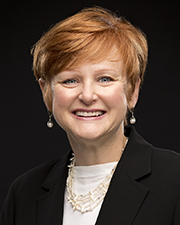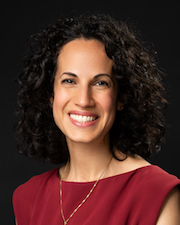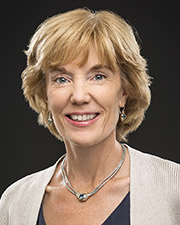Penn GSE News Archive

Ready student one? Universities launch esports degree programs
Joni Finney notes that new niche degrees, like a degree in esports, are a sign of the evolving economy, but she also cautions that some degrees are too specialized, and that some schools may be offering these degrees to counter a decrease in enrollment numbers.

Effects of harsh and violent discipline on child behavioural outcomes
Sharon Wolf’s research examined three forms of discipline among caregivers of preschoolers in Ghana and described the harmful effects of harsh and violent discipline.

5 tips for reporting on ‘free college’ and ‘college promise’ programs
Laura Perna shares suggestions on how journalists can improve their coverage of programs that are addressing college access and affordability.
The Dark Fantastic: Race and the Imagination from Harry Potter to the Hunger Games
Ebony Elizabeth Thomas is interviewed by the New Books in African American Studies podcast about her book The Dark Fantastic. She talks about the role that race plays in recent blockbuster stories and how these narratives are shaping the ways that young people think about race.
This West Chester Entrepreneur Aims to Redefine Technology's Role in the Classroom
John Gamba discusses transforming schools by designing digital tools that engage students and teachers, and using technology to foster the 4 Cs: critical thinking skills, creativity, collaboration, and character.

Summit Learning reports highlight big ambitions for personalized learning, struggles to prove academic success
Rand Quinn notes that the vision for rapid growth can be fueled by both the funder and the grantee as they try to demonstrate and achieve the broadest impact.
Penn’s Grad School of Education cultivates a pipeline
Dean Pam Grossman, Vivian Gadsden, and Ed Brockenbrough discuss how Penn GSE advocates for equity and inclusion as it builds a pipeline for future students. “Having a diverse set of teachers, a diverse set of leaders is incredibly important in inspiring the next generation to imagine themselves in those roles,” said the Dean.

Revolving door: Teachers, principals churn through HISD’s lowest-performing schools
Richard Ingersoll spoke about the importance of teaching-staff retention. “We have 50 years of research that shows good schools have a sense of community and strong bonds,” he said. “The good schools, it’s not like a factory. It’s more like a family.”

Chapter 13 bankruptcy for student loans? It's possible
Laura Perna discussed her recent study, which revealed that many net price calculators are using old tuition data and misleading costs. “Paying for college is too important for there to be wrong data,” said Perna.

Democracy depends on kids not imitating Donald Trump's racist tweets and attacks
Jonathan Zimmerman writes that schools should denounce President Donald Trump’s recent comments about four Democratic congresswomen. While he asserts that teachers should guard against vilifying students who support Trump, he says that we must “make sure our children do not behave like him.”

Go to college for free - yes, free - at these Pa. and N.J. schools
Laura Perna’s College Promise program is cited as a resource that helps consumers track free and highly subsidized college in the U.S.
Disney cast the Little Mermaid as a black woman. Why that unnerved some is the same reason others rejoiced
Ebony Elizabeth Thomas discussed the casting of a black woman as Ariel in the upcoming “Little Mermaid” remake. “Whether it’s seeing people of color traveling faster than the speed of light, or as superheroes, dragons, or even mermaids, when we see ourselves in these roles, even as kids we believe we can do anything,” she said. “These images shape our minds on a subconscious level.”

Bernie Sanders unveils education plan to eliminate student loan debt
Joni E. Finney said presidential candidate Bernie Sanders’s plan to eliminate student loan debt “doesn’t match the complexity of the cost education problem.”
Teachers push for books with more diversity, fewer stereotypes
Ebony Elizabeth Thomas is quoted on historical and present-day patterns in the literary representations of people of color that are accessible to students in classroom libraries.

Where the presidential candidates went to school
Jonathan Zimmerman comments on 2020 presidential candidates' educational backgrounds and what history reveals about how experience with public schooling relates to policymaking.

Saddled with debt, recent grads can't save
Joni Finney speaks about the role colleges and universities have played in the national student loan debt crisis by increasing tuition rates and failing to clearly explain the costs of attendance.
